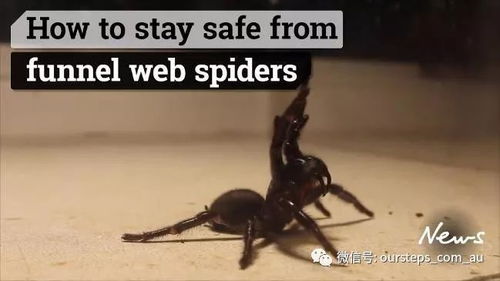
Spider Bite Symptoms: A Comprehensive Guide
When it comes to spider bites, it’s crucial to be aware of the symptoms and understand how to respond. Spider bites can range from mild to severe, and some species can be quite dangerous. In this article, we will delve into the various symptoms of spider bites, their causes, and the steps you should take if you suspect you’ve been bitten.
Common Symptoms of Spider Bites

Spider bites often present with a range of symptoms, which can vary depending on the species of spider and the individual’s immune response. Here are some of the most common symptoms:
-
Redness and swelling at the bite site
-
Pain, which can range from mild to severe
-
Itching
-
Wheals or blisters
-
Joint pain or muscle aches
-
Feeling of warmth or heat at the bite site
-
Generalized symptoms such as fever, chills, or nausea
It’s important to note that not all spider bites will result in these symptoms, and some individuals may not experience any symptoms at all.
Spider Bite vs. Bee or Wasp Sting

Spider bites can sometimes be mistaken for bee or wasp stings, as they share some similar symptoms. However, there are key differences to help distinguish between the two:
| Spider Bite | Bee or Wasp Sting |
|---|---|
| Single puncture wound | Multiple puncture wounds |
| Redness and swelling at the bite site | Redness and swelling at the sting site |
| Pain, which can range from mild to severe | Pain, which can be severe |
| Itching | Itching |
| Wheals or blisters | No wheals or blisters |
While bee or wasp stings are generally not life-threatening, some spider bites can be quite serious. If you’re unsure whether you’ve been bitten by a spider or another insect, it’s always best to seek medical attention.
Identifying the Spider

Identifying the spider that has bitten you can be crucial in determining the severity of the bite and the appropriate treatment. Here are some tips for identifying the spider:
-
Observe the color, size, and shape of the spider
-
Take a clear photo of the spider, if possible
-
Look for any distinctive patterns or markings on the spider’s body
-
Consult with a local entomologist or spider expert
Remember, some spiders are more dangerous than others, and knowing the species can help healthcare professionals provide the best possible care.
When to Seek Medical Attention
While most spider bites are not life-threatening, there are certain situations where you should seek medical attention immediately:
-
Severe pain or swelling at the bite site
-
Difficulty breathing or swallowing
-
Severe redness or swelling that spreads beyond the bite site
-
Confusion or disorientation
-
Signs of infection, such as fever, chills, or pus
It’s always better to err on the side of caution when it comes to spider bites, especially if you’re experiencing severe symptoms or have a known allergy to spider venom.
Preventing Spider Bites
While it’s impossible to completely avoid spider bites, there are steps you can take to reduce your risk:
-
Keep your home clean and




